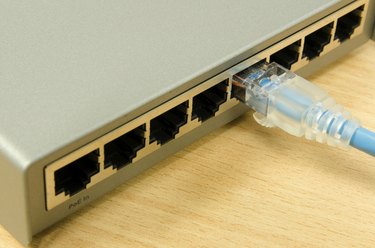
Clear to send (CTS) protection mode is a wireless setting that ensures computers on a network can connect to a wireless router when many communications devices are present.
Default Value
Video of the Day
Each wireless router manufacturer has a different default value. If default is off or disabled, network computers may experience difficulty in reaching the Internet as they all try to connect at the same time. When switched on, a computer must receive a CTS frame from the wireless access point (WAP) before information can be sent. An auto setting determines which computer can reach a WAP at a specific through a request to send (RTS) packet.
Video of the Day
Information Collisions
Computers are unable to detect when other devices on a network attempt to transmit data. Without CTS, information collisions can occur, causing the WAP to return an error message to the originating computer. CTS determines the order in which computers contact the WAP.
Protection Type
CTS-only and CTS-RTS are the two methods of protection. In CTS-only, computers must receive a self-directed CTS frame before sending data. For CTS-RTS, the computer must send an RTS and receive a CTS before transmission. The rate of data transmission can also be adjusted to regulate how quickly communication occurs.